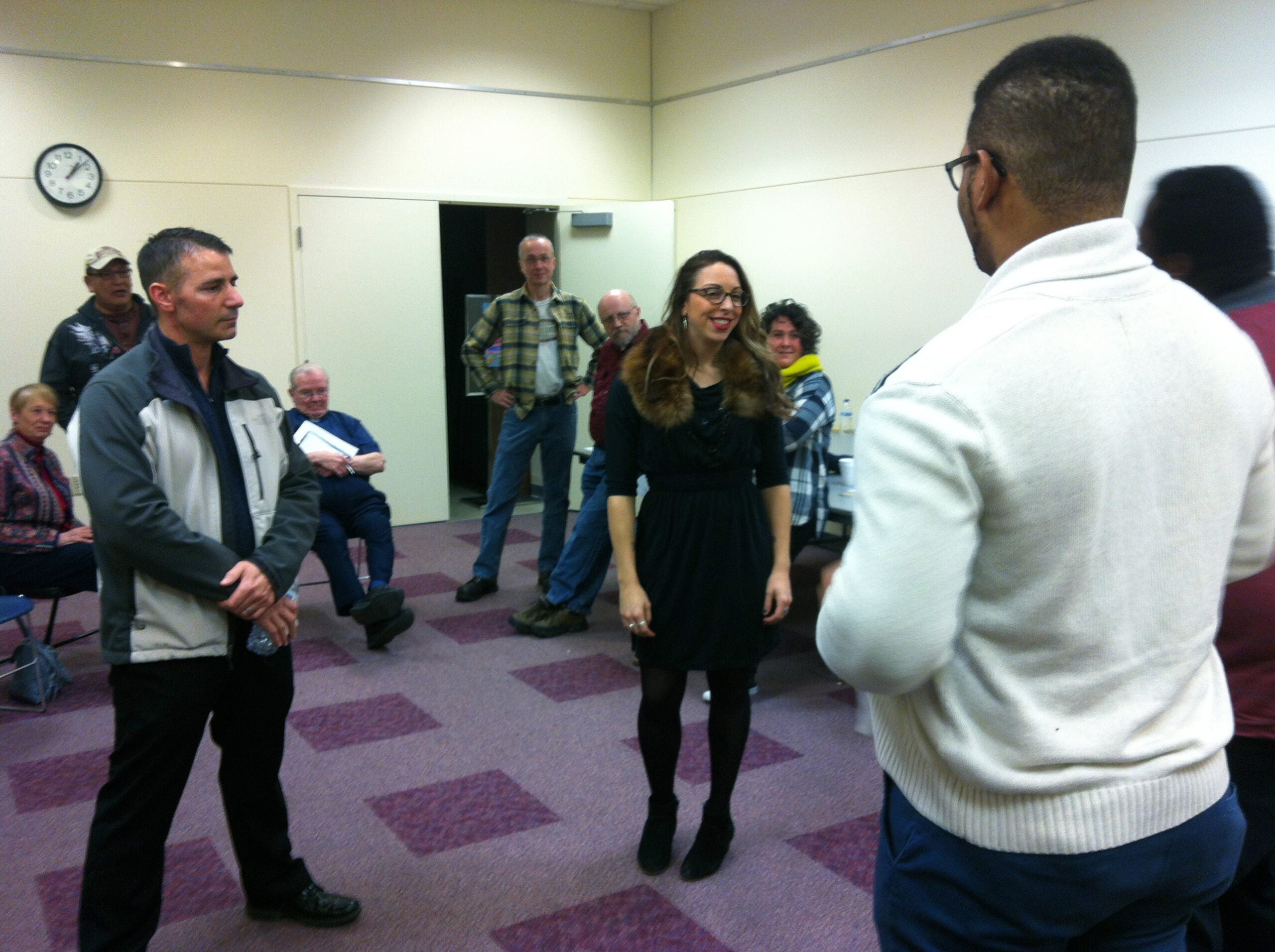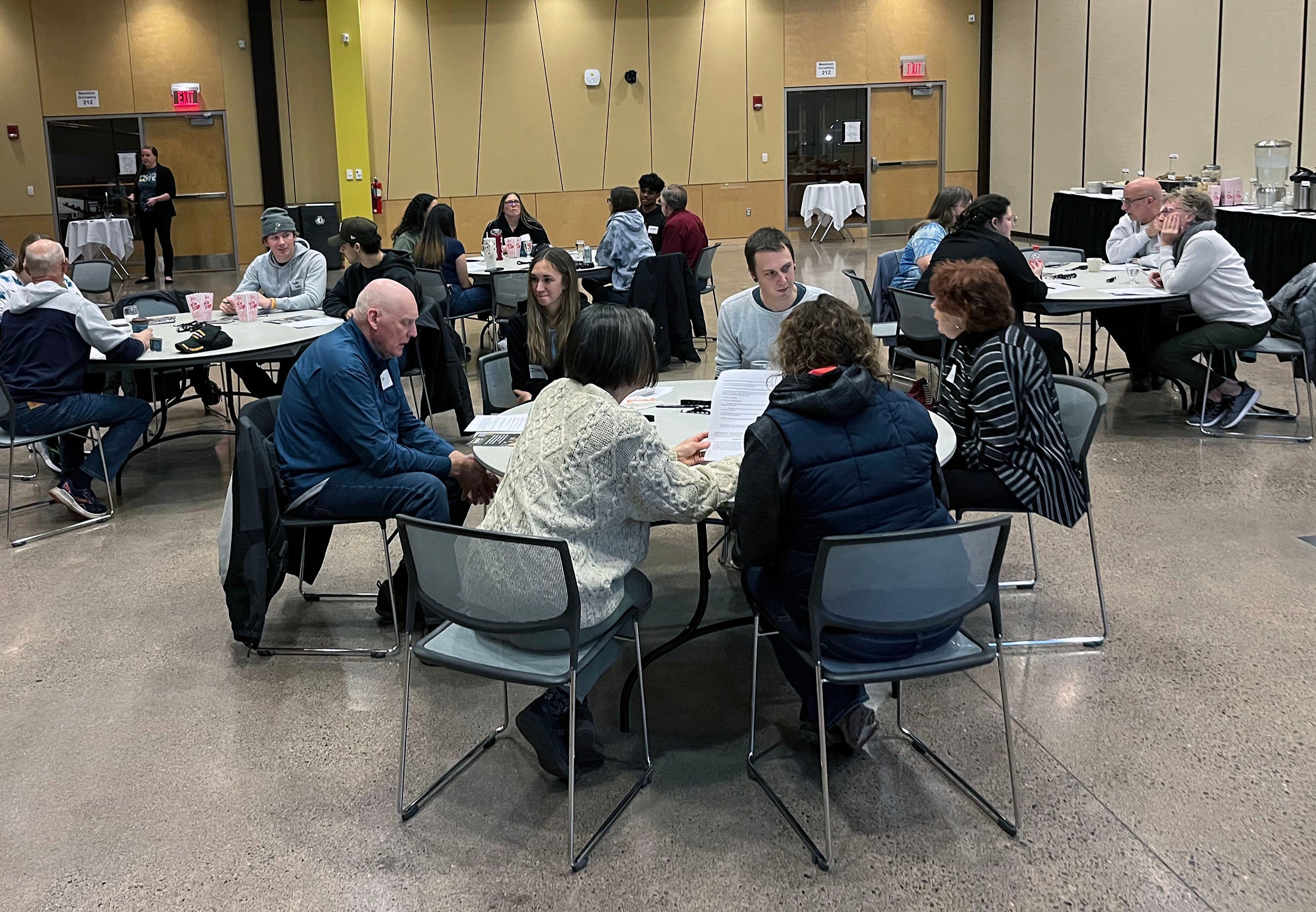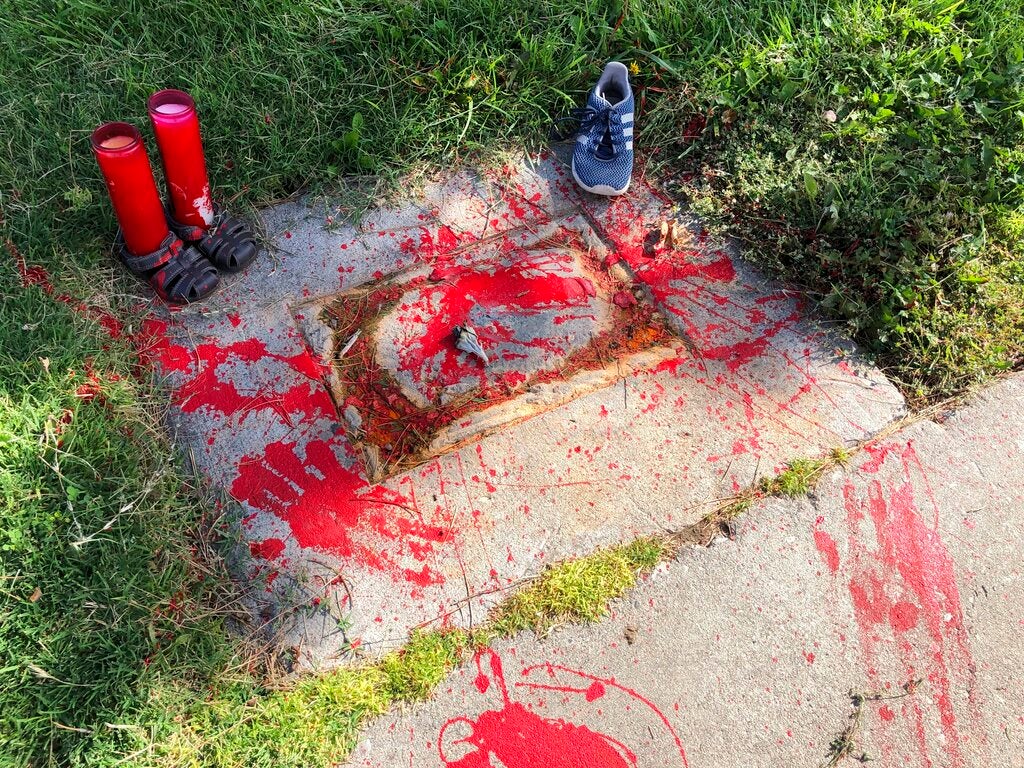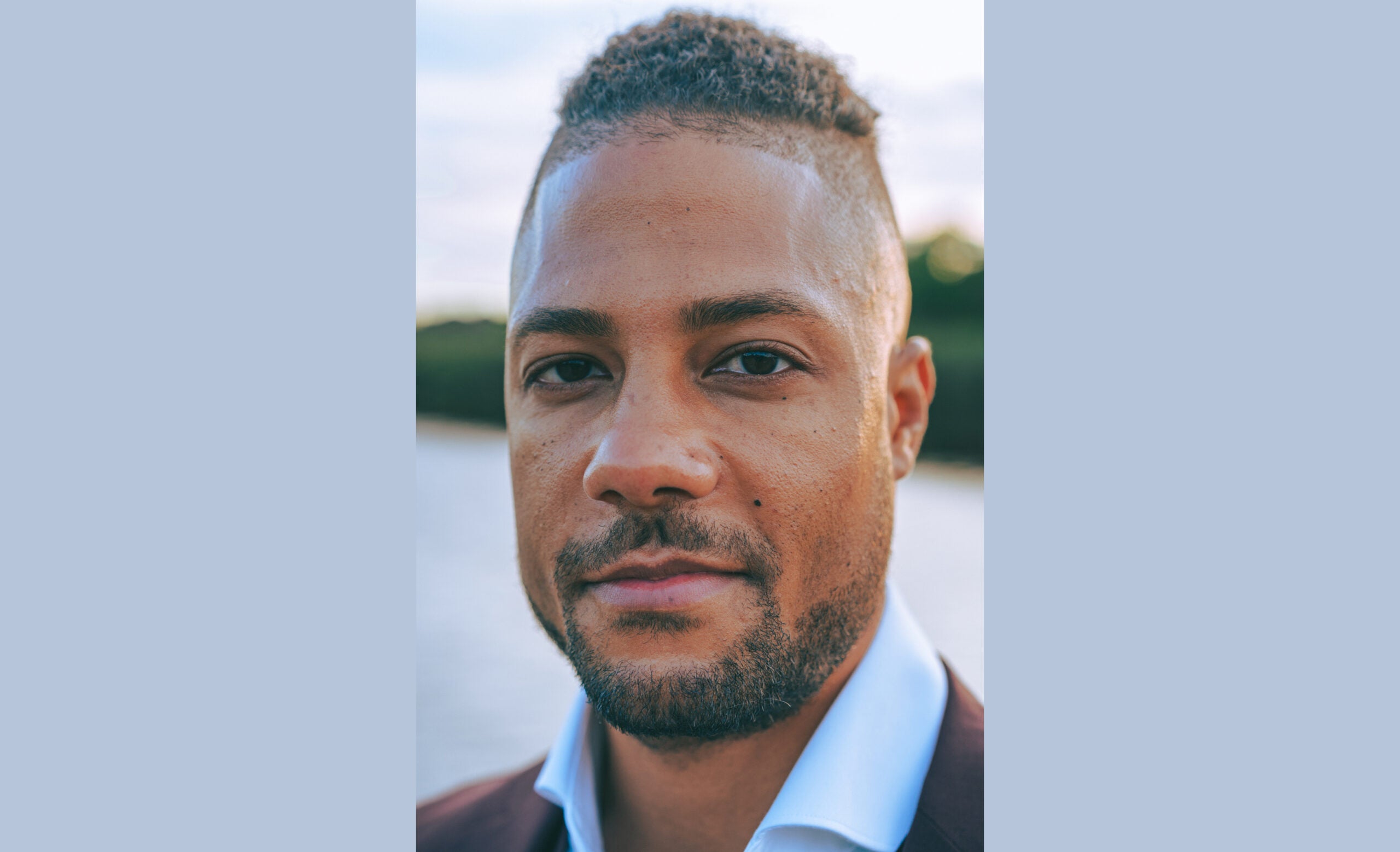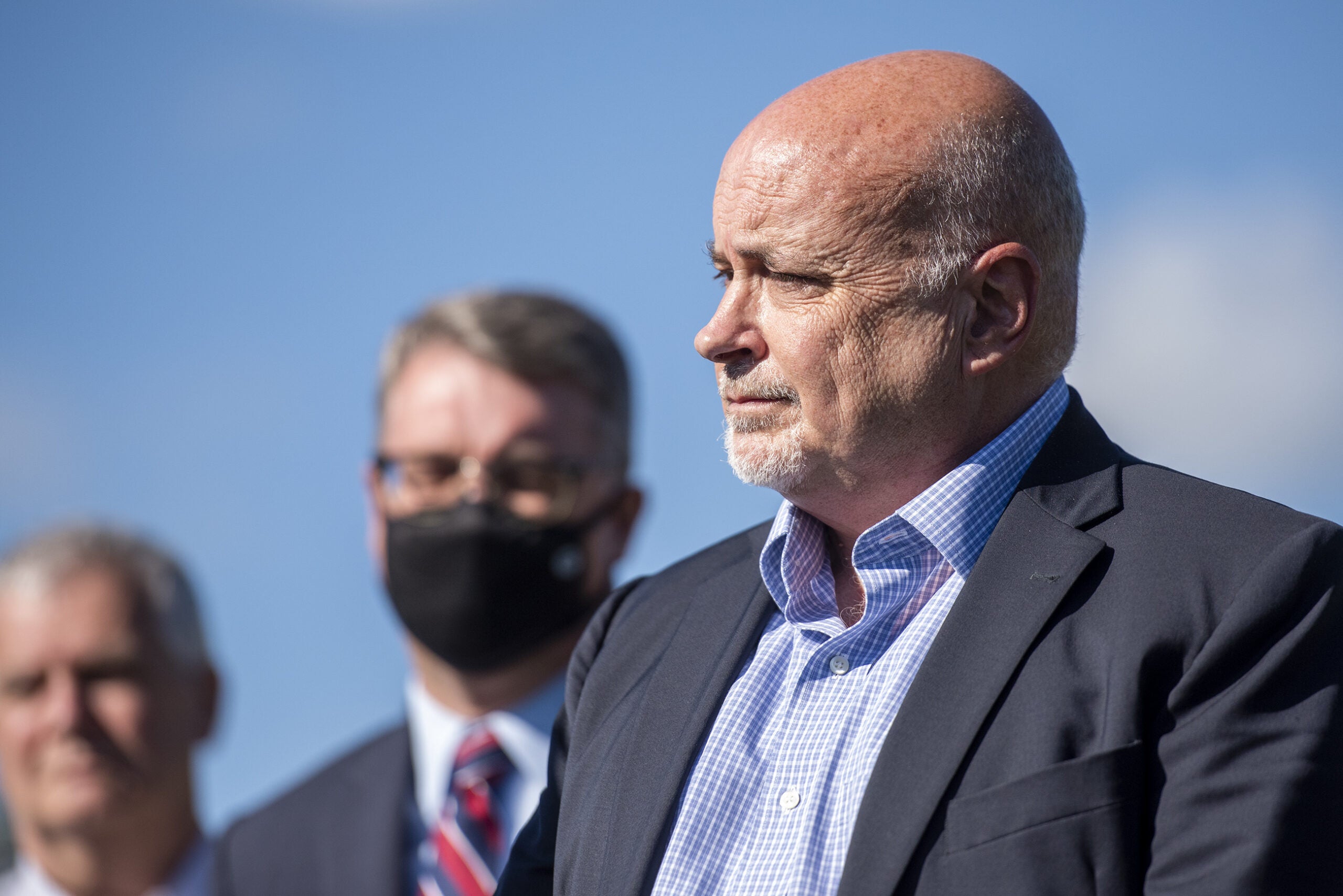Superior Police Chief Nick Alexander stood in a circle with Laura Gapske and Josiah Madison at Superior Public Library on Tuesday to take part in a role-playing session: The three were acting out a police call to a domestic dispute between Gapske, a white woman, and Madison, a biracial man.
“We have Laura. She’s yelling. She’s frustrated,” said Tim Davis, the group’s facilitator. “This is a what? Cultural bias and misunderstanding. Generally, what happens? You’re (Madison) going to get arrested.”
In this scenario, Davis argued, Madison would most likely be arrested because of his skin color, even though who’s at fault may not be immediately clear.
Stay informed on the latest news
Sign up for WPR’s email newsletter.
Superior’s police chief said gender also plays a role in people’s biases: “It’s typically the male who’s at fault,” said Alexander.
The session was just part of a forum organized by the Superior African Heritage Community to foster discussions about how preconceived notions affect interactions between people. It’s an event that came a little over a month after Bruce Hagen, the city’s mayor, posted a Facebook comment calling President Barack Obama a Muslim, consequently igniting a conversation about cultural misunderstandings and race in the Twin Ports.
Community Members Who Want ‘To Be At The Table’
Nick Alexander became Superior’s police chief a little more than a year ago. At the time, a white police officer had just been cleared of charges of using excessive force during the arrest of a black woman.
Alexander has been working ever since to address cultural and racial divides between police and the community, but he said it’s not just law enforcement that needs a gut check.
“I came in plain clothes today,” he said at the forum Tuesday. “I’m quite sure I would’ve been looked at by some people differently today had I come in uniform.”
Josiah Madison, a resident of Duluth, is adopted. He has seven brothers who are white and three who are black. He said people sometimes draw the wrong conclusions even when they don’t mean any harm. For example, he recalled a time that he and his white older brother had been joking outside a gas station when an older man walked by them.
“He had seen him making a joke at me, and I started crying,” Madison explained. “So, this man comes up. Whatever he had seen is what he had seen in his perception. He thought (my older brother) was picking on me as some random person — (he thought) he was being racist towards me.”
Douglas County District Attorney Dan Blank said the justice system is sensitive to racial or cultural disparities, and that it tries to treat everyone equally by looking at conduct, offenses and fair consequences.
“Unless you can put yourselves in the shoes of the minorities, you have no idea what it feels like or what’s actually going on,” said Blank. “The majority can’t relate.”
Blank said that’s why he thought it was important to attend the forum.
“I think it’s a proactive approach, given what’s happened nationally,” he said. “And that’s why I’d like to be at the table and a part of it — to be planning ahead and learning from others’ mistakes or issues.”
Education And Challenging Perceptions
For his part, Superior’s police chief says more education is needed. For example, said Alexander, state law enforcement standards require recruits to receive 720 hours of instruction. However, only four hours are devoted to cultural diversity.
“You can’t touch on a topic of that depth in four hours,” he said. “It’s very generic and it’s more on just the generalities of teaching everybody equal and fair, without touching into some of the unconscious things that are going on and how your decisions are going to be impacted.”
Facilitator Tim Davis said education needs to start before any stereotypes take root, but he said everyone needs to work to better understand one another.
“I think the problem becomes when being naïve and being ignorant is an excuse,” he said.
Davis said it’s important people challenge their perceptions now so they’ll be able to see things from another point of view the next time a situation plays out in real life.
Wisconsin Public Radio, © Copyright 2025, Board of Regents of the University of Wisconsin System and Wisconsin Educational Communications Board.
